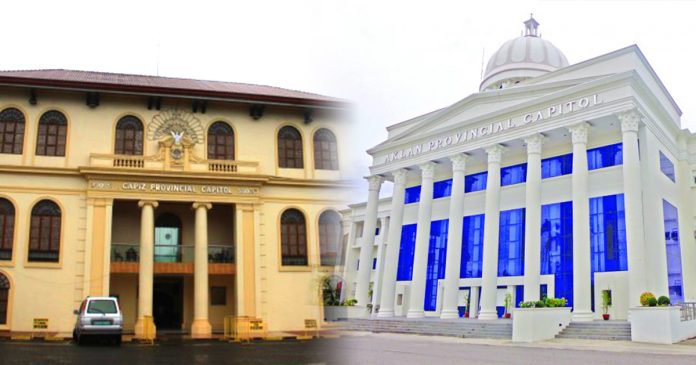
ILOILO City – Taking cue from the provincial government of Iloilo, the provinces of Capiz and Aklan are also re-imposing border restrictions to halt the transmission of coronavirus disease 2019 (COVID-19) infections in mostly returning locally stranded individuals (LSIs) and repatriated overseas Filipino workers (OFWs).
The provincial government of Capiz gave its residents based outside the province until July 5 only to return to Capiz.
Residents who fail to enter Capiz’s border by Sunday will be considered LSIs, under Gov. Esteban Contreras’ Executive Order No. 20-C issued on July 2.
“The provincial government deems it necessary to strictly secure its borders,” said Contreras.
With six COVID-19 cases and two repatriated overseas workers infected as of July 2, Capiz remains under a modified general community quarantine (MGCQ, moderate risk).
The movement of senior citizens and youngsters in Capiz would be restricted, too.
To go out of their houses and secure essential needs, persons aged 60 years old and older and those below 21 years old must first secure a special quarantine pass.
Also, cargo vehicles transporting essential goods and products must have a special quarantine pass and their drivers and helpers must wear facemasks and observe physical distancing.
Another requirement is a medical certificate stating that the bearer is not a suspected, probable or confirmed COVID-19 case.
Repatriated overseas workers returning to Capiz as organized by the Overseas Workers Welfare Administration may also be granted special quarantine pass.
Meanwhile, Aklan’s Gov. Florencio Miraflores issued an executive order allowing the entry only of Aklanons and the delivery of essential goods and commodities.
Also allowed to cross Aklan’s borders are authorized persons (government officials, health emergency personnel, persons traveling for humanitarian reasons, persons granted passage to the airport for travel abroad, and non-Aklanons entering the province for work).
However, they will be required to present government-issued identification cards and pertinent documents.
Also allowed to travel into the province are returning overseas workers that have secured travel authority from the Joint Task Force COVID-19 Shield, a negative RT-PCR (reverse transcript-polymerase chain reaction) test result, and a quarantine certification from the Bureau of Quarantine.
Aklan adopted the pronouncement of National Task Force chairperson Delfin Lorenzana suspending the transportation of LSIs to Regions 6 and 8, Cebu City, and Cebu province.
“Therefore, transportation of LSIs into the province of Aklan as well as those passing through the province by any means of transportation is likewise suspended,” Miraflores said.
The suspension of LSIs’ transport to Aklan exempts those coming from Western Visayas who have secured a medical certificate and a travel authority from the police.
Those who will travel outside Aklan will not be restricted, Miraflores said.
Like Capiz, remains under MGCQ, too, albeit classified as “low risk.”
Data from the Department of Health Region 6 as of July 1 showed Aklan with six COVID-19 cases, and its five repatriated overseas workers and LSIs were also infected.
On July 1, Iloilo province re-imposed border restrictions. (With a report from the Philippine News Agency/PN)



